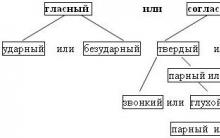This is the question most job seekers ask when faced with the need to write a resume for the first time. . On the one hand, we understand that everyone has shortcomings. On the other hand, it is important to present them to the employer in such a way as not to harm yourself. So, what weaknesses should you include on your resume?
You will probably encounter this question when looking for a job. First, try making a list of possible shortcomings. Remember what your acquaintances and friends usually tell you about this: “You always...” or “In general, it’s typical for you...” or “Well, you’re famous...” or “It bothers you...” You can ask your loved ones and colleagues to give you feedback on what you really lack professionally, what skills you should improve, what personal characteristics you need to work on. You will receive a lot of valuable information with which you can already do something.
Remember that the information must be reliable. At the interview, the employer may ask you to provide arguments and examples from your life and professional career that confirm both your positive aspects and shortcomings. You may be asked how this or that quality of yours is manifested, and your attitude may be asked.
When listing shortcomings, try avoid formal and socially desirable responses, such as, for example, laziness, hyper-responsibility, “an honest workaholic,” perfectionism, honesty, decency, excessive self-criticism, excessive demands (especially for leadership positions), “I get too carried away with my work,” “too persistent in achieving my goals,” “ I have my own opinion”, etc. Such qualities cannot be clearly classified as negative or positive. Rather, they indicate that you do not want to answer the question about shortcomings. Indicate both personal and professional qualities. Avoid florid phrases like: “I consider my shortcomings to be an extension of my strengths” or “I have shortcomings, but they have nothing to do with my professional activities.”
Be specific about your shortcomings. Indicate 2-3 qualities, no more. It is very important that your shortcomings must not conflict with the key requirements of the vacancy for which you are applying. For example, “lack of self-confidence” may be a neutral quality for jobs that do not involve constant interaction with people, but be critical for a job as a claims manager.
It’s paradoxical, but the willingness to talk about one’s shortcomings is more likely will win the employer's favor. Indicate not only your professional characteristics, but also the qualities that characterize you as member of the work team. It is better to honestly indicate character traits and temperamental features in order to avoid future conflicts at work.
Here are a few examples indications of shortcomings in a resume:
- prone to formalism
- excess weight
- restlessness
- not very punctual
- slowness
- hyperactivity
- impulsiveness
- fear of air travel
- "It's hard to say no"
- increased anxiety
- straightforwardness
- hot temper
- "requires external motivation"
- isolation
- self-confidence
- distrust of people
- "I can raise my voice"
This is a conditional list. You may have your own thoughts about which shortcomings to point out. Remember that it is better to know your shortcomings and work on them than to avoid answering both to the employer and to yourself. Good luck with your resume!
Getting a first job is a troublesome and incomprehensible matter. In college, they don’t teach you how to fill out forms, and if they talk about it, it’s in a general sense, without specifics. That’s why young people get stupefied when they need to name a person’s weaknesses. What to write? How, in general, should we approach such points? How are the strengths and weaknesses of a person determined in the context of professional activity? Let's figure it out.
Self-knowledge
Let's start with the fact that a person, one way or another, evaluates his character, inclinations, and abilities. He knows more about this than anyone else. A person’s weaknesses are an obstacle that hinders his realization. We usually consider these to be laziness, absent-mindedness, gluttony, love of sleep, desire to have fun rather than work. But this has an indirect relation to the place of service. And is it worth telling your employer that you like to eat cakes three times a day? This does not particularly affect the performance of work duties.
When you need to talk about yourself, you need to focus on the conditions in which you will have to work. That is, analyze your qualities, identify those that will help you work, and those that will hinder you. Pay special attention to the point “person’s weaknesses.” Say too much and they will refuse to hire you. If you hide what is relevant, you will be fired in a few days. The moment is very subtle. It should be approached in a balanced, thoughtful, careful, but honest manner. Below we will try to fill out this item in practice in such a way as to avoid negative consequences. But first, take a piece of paper and write down what you consider to be your weaknesses. Don't think about work yet. Record everything that comes to mind. We'll sift out the excess later.

How to analyze your abilities
To describe a person’s weaknesses for a questionnaire, it is necessary to carefully understand the character, habits, and internal attitudes. Would you say that only a specialist can do this? You will be wrong! Now you will see everything for yourself. Sit comfortably, armed with a pen, and make lists. Enter in the hotel columns the following:
- works well;
- likes to perform;
- It doesn’t work out at all;
- still needs to be mastered;
- causes disgust;
- it is done, but with a creak, without enthusiasm.
If you approach this process thoroughly, you will get the basis for identifying a person’s weaknesses for the questionnaire. This is, in principle, what specialists do. They extract this information during conversation, observation, and testing. But you know yourself, and therefore things will go faster. And to make your work easier, here is a list of what are considered weaknesses. Focus on this data, but try not to copy it. Use your own brains!

Human weaknesses: examples
The employer needs you to keep things moving and not stand still. A person is given a range of responsibilities that must be strictly fulfilled. His personality traits may interfere with his work. To identify such inconsistencies, a column is filled in that identifies a person’s weaknesses. Believe me, there is nothing shameful in this. We are all different, different from each other. One can command, the other is better at executing. Both individuals will find a place that will bring them satisfaction and profit, and benefit the common cause. Weaknesses can be as follows (for the employee):
- lack of inclination to communicate, low sociability;
- isolation;
- little experience;
- excessive emotionality;
- lack of specialized education;
- poor skills;
- conflict;
- lenient attitude towards lies.
The list is very approximate in order to guide those who are faced with the problem for the first time. Here you can add, for example, fear of public speaking (if necessary), inability to count money (if necessary), and so on. It should be based on the job responsibilities for which you are applying.

Strengths
By analogy, you can praise yourself in a questionnaire. Indicate all your talents, abilities, skills, experience. Eg:
- strength of will;
- endurance;
- durability;
- determination;
- calm;
- organization;
- clarity of mind;
- determination;
- communication skills;
- initiative;
- patience;
- love of truth;
- justice;
- thrift;
- business abilities;
- financial skills;
- tolerance;
- spirituality;
- analytics;
- ability to compromise;
- artistry;
- accuracy;
- respectful attitude towards leaders.
The list is also very approximate. It will be easier to correct it if they explain to you what you will need to do at work. Be sure to inquire. And from the responsibilities, highlight the skills that are necessary for their successful implementation.
What is desirable to hide
It is not recommended to lie when filling out the questionnaire. But there are moments that are better not to talk about. For example, you lack willpower. That is, there were no moments in life when it needed to be demonstrated. So you think that it doesn’t exist. Then just don't include this item. There's nothing wrong with that. Believe me, this quality, called positive by society, is questionable for the employer. If a worker is stubborn, having all the inclinations to achieve the goal, it is difficult to deal with him. Such people complain to the courts and can write a statement to the authorities. Why do management need these problems?
When filling out the questionnaire, focus more on business characteristics. This is where you have to be extremely sincere. Each item indicated in the questionnaire will be checked in practice. It will be awkward and embarrassing if you are caught in a lie. If you don’t know how to talk to a client, point it out. This is a profitable business - they will teach you. And for honesty you will receive bonuses, albeit intangible ones.

You know, interviews are usually conducted by people who know how to identify a person’s strengths and weaknesses. Examples constantly pass before their eyes. Involuntarily, you will learn to notice the subtleties and nuances of behavior and project them onto characters. When you come across such a form, fill it out and read what you write twice. It is necessary to take a look at your data as if from the outside. You have two lists. Look at the list ratio. It is desirable that there be three times more positive, strong qualities than weak ones. Judge for yourself, who needs a worker who can’t do anything and doesn’t want to? It is foolish to give such an individual a chance to grow. And what do you think?
A good, well-written resume is a powerful argument in favor of hiring. It can be a serious advantage, so you should start your job search by drawing it up. In the West, careerists keep their resumes throughout their lives, and add new lines as they improve their qualifications or change jobs. A document providing information about the applicant before the interview is part of business etiquette, which should not be neglected.
What you can and should write about yourself in your resume
There are basic points that must be spelled out. Indicate your strengths in your resume, avoid unnecessary things, only be informative. A resume is a brief summary of skills and qualities. From the first lines, show that you are a person with a serious character, focused on results. So what you need:
- Personal information: full name, date of birth, marital status. If desired, you can add a photo.
- Contacts. Please include your phone number and email address at the beginning of your resume. This will make it easier for them to find you when they want to contact you.
- Desired vacancy. This item must be filled out.
- Education. Indicate all institutions, courses, trainings that you have completed. School, university, attended a seminar on NLP - your knowledge base should be impressive. Be prepared to document each point.
- Experience. Have you already held a similar position? Put this on your resume. A person who does not have a single entry in his work book will be treated with suspicion.
- Additional Information. Here you can talk about your hobbies, strengths and weaknesses. Carefully select personal qualities for your resume. It will be a plus if they prove useful in the position.
Professional skills and abilities
Describe yourself in your resume: Show the employer that you are qualified for the position. Proficiency in computer programs, knowledge of languages, possession of a driver's license - all this must be described in this paragraph. Place your resume skills and abilities in order of importance for your future job. If you have a specific, not-so-useful talent that you want to list, put it at the end of the list.
Personal qualities of a person
Education and experience are not the only evaluation criteria. Personal qualities for writing a good resume, although not mandatory, can play a decisive role in many situations. Imagine what kind of employee the director of the company wants to see? Do you have common positive qualities with him, can you look competitive? Be sure to write about it, use your advantages!
Character strengths and weaknesses

Correctly selected good and bad personal qualities for a resume will help you get a job. If you cope with your responsibilities, character weaknesses will not be so important. Often the same trait becomes a trump card or interferes with work. Present your shortcomings as advantages in your resume and show your willingness to work on yourself. Determination is a character strength that is valued in a team.
| Positive character traits for a resume | Negative character traits for a resume | Ambiguous character traits for a resume |
| Responsiveness | Contempt | Individualism |
| Sensitivity | Closedness | Pedantry |
| Sociability | Coarseness | Scrupulousness |
| Hard work | Negligence | Self-criticism |
| Accuracy | Sloppiness | Self-esteem |
| Care | Conceit |
|
| Responsibility | Passivity | Vanity |
| Integrity | Negligence | Mistrust |
| Punctuality | Touchiness | Self-confidence |
| Friendliness | Arrogance | Hyperreactivity |
| Discipline | Hot temper | Straightforwardness |
| Resourcefulness | Indifference | Demandingness |
| Focus on results | Greed | Pedantry |
| Organization | Envy | Modesty |
What weaknesses can be indicated in a resume?

The employee’s task is not to scare you away, but to show that you do not suffer from inflated self-esteem. Be honest, but strongly negative personal qualities are inappropriate for a resume and should not be included. The second column of the table will scare off the employer. Character traits from the third will play a positive role for certain positions. Don't be cunning and don't try to present advantages as disadvantages. This will be conspicuous and reveal insincerity.
Examples: individualism is good for a creative profession; it helps presenters or artists stand out from the crowd. When working in a team, on the contrary, you need to be able to become part of the team and take into account the opinions of others. A pedantic character will interfere with working quickly, but it is appropriate where quality comes first. Modesty will prevent you from communicating freely with clients, however, with the right approach, it will show the company in a good light.
Each person has strengths and weaknesses of character that can play to his advantage or to his detriment. Especially when applying for a job or during an interview on which your future depends.
Human Strengths
It is known that among us ordinary people there are no “saints”. And each person has his own advantages and disadvantages. Therefore, it is worth paying attention to the first of them. In order to “shine” in live speech during an interview and live communication, think in advance about the qualities that you think are inherent to you.
An example of a good list of a person's strengths:
- Communication skills;
- Determination;
- Integrity;
- Performance;
- Friendliness;
- Stress resistance;
- Responsibility;
- Punctuality, etc.
If you list at least some of the above traits and qualities, that's half the success. If the manager sees how seriously you approach this issue, he will appreciate your ability to correctly express thoughts and convey the essence. You should not praise yourself and promise what you cannot fulfill.
For example, if you do not specialize in a particular industry, but you are asked provocative questions about a specific problem, it would be more honest to answer that you do not yet have such skills, but are striving and want to expand your boundaries and skills. Then the employer will be able to appreciate your honesty and desire to develop and climb the career ladder.
The future leader may ask you tricky questions, the answers to which will not be entirely convenient. The candidate's endurance and ability to get out of difficult situations are tested in this way.
This seems wrong. But if you are applying for a good position with a high salary and you will be required to be able to communicate with people competently and without emotions, then you must have self-control and discipline.
A potential employer, through live communication, will be able to identify your strengths and weaknesses and draw conclusions about your personality.
The manager will also ask you about your strengths and weaknesses. You should not take this issue seriously and completely remove all the “skeletons” from the closet. It will be enough if you name some minor shortcomings: for example, shyness. This little vice rarely deters. Therefore, there is no need to worry about this.
To avoid embarrassment during an interview and personal conversation with a potential employer, make a list of your strengths in advance. It will be useful for you to analyze your mentality and character, thereby you will be ready for such a question and will not be confused.
Take a blank piece of paper and start writing down the qualities that you are proud of. For example, kindness, understanding, responsiveness, sociability, learning ability, etc. This is a kind of training. You will be able to objectively evaluate your pros and cons. And in advance, you can write a list of those qualities that you do not possess, but are trying to develop in yourself. This will give you a push and incentive to change.
Weaknesses of a person, their list
Now let's try to consider the weaknesses of human character. Most often, when trying to get a job, during the interview the employer may notice some shortcomings of the future candidate for the position. For example, he may be alarmed by inattention, absent-mindedness and slurred speech.
Consider a list of the most common human shortcomings and weaknesses:
- Indecisiveness;
- Emotional stiffness;
- Shyness;
- Timidity;
- Coarseness;
- Rudeness, etc.
When talking, try to tell your boss about your interests, hobbies, and a little about the family in which you grew up. In this way, you will win over the employer, and he will appreciate your aspirations and see that you are ready to do a lot for the sake of work. Honesty and unobtrusive frankness will benefit you.
Weaknesses in a resume
When writing your resume, be careful when indicating the reason for leaving your previous job. For example, if there were conflict situations with employees, or disagreements with the employer. It doesn't matter why you quit. Do not write about the reasons for leaving; it is better to write about it discreetly. For example, you weren’t happy with your work schedule, or you had to change your position due to a move.
Also, try not to get personal and tell your future employer about your past work team. It is better to avoid inconvenient topics tactfully and carefully. At the same time, without losing composure and self-esteem.
Strengths of a person in a resume example
When writing your resume, be careful to highlight your strengths. For example, you should not write about character traits that you do not possess. It’s better to focus on the strengths of your character. For example, you could write the following traits:
- Determination;
- Curiosity;
- Stress resistance;
- Communication skills;
- Ability to get out of different situations;
- Active life position.
By listing these qualities, you will definitely make a positive impression on your boss, and your candidacy will be considered.
Strengths and weaknesses of a leader
Additionally, you may be asked what qualities and personal merits you would like to see in your boss. It’s worth thinking about the answer to this question in advance. For example, you can say what you want to see in a leader:
- Determination;
- Restraint;
- Responsiveness;
- Demandingness;
- Communication skills;
- Individual approach to employees;
- Decisiveness, etc.
You won't be asked questions like this for nothing. After all, every employer wants to see what the employee expects from his superiors. If you answer adequately and your potential boss likes you, you will get a permanent position.
Character strengths and weaknesses
Let's summarize. When applying for a job, you should think through your answers in advance to make a good impression on future employers. If you actively communicate, show your best side, emphasizing the strengths of your character, you will definitely get a promising job and the desired position.











Conventional graphic symbols
The problem of the presence of petroleum products in water and how to deal with it See what “PND F” is in other dictionaries
About a six-day work week With a 6-day
What is a social worker?
Root hermitage in the Kursk region: the story of a miracle Root hermitage prayer service for the sick